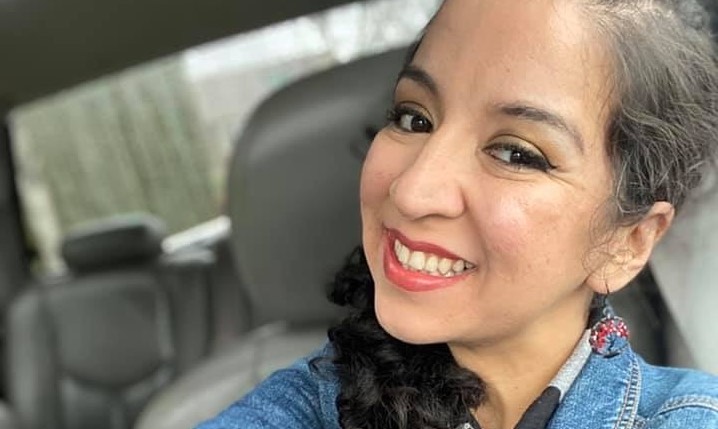
Health care providers stress the importance of knowing your family health history. In the case of colon and other cancers, that health history can direct screenings and preventative care which can potentially save your life.
But what happens if you don’t know your family’s medical history?
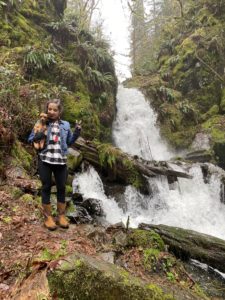 That was where Amber Case found herself. Growing up in foster care, Amber lived in home after home, and her family history was not available. She wasn’t armed with family health knowledge when she began going in to her PCP with back issues, abdominal pain, and fatigue. In the paperwork she would fill out at medical appointments, questions were asked about family history, but all she could write was “does not apply.” She was written off by doctors, told her symptoms were hormonal imbalance, anemia, and vitamin deficiencies. No one ever sought to discover the cause of her pain. The pain became so bad that Amber had to give up on her love of the outdoors and hiking.
That was where Amber Case found herself. Growing up in foster care, Amber lived in home after home, and her family history was not available. She wasn’t armed with family health knowledge when she began going in to her PCP with back issues, abdominal pain, and fatigue. In the paperwork she would fill out at medical appointments, questions were asked about family history, but all she could write was “does not apply.” She was written off by doctors, told her symptoms were hormonal imbalance, anemia, and vitamin deficiencies. No one ever sought to discover the cause of her pain. The pain became so bad that Amber had to give up on her love of the outdoors and hiking.
Then one day at work as a medical assistant, she was helping to room a patient when she started bleeding rectally. She immediately went back to the ER, where no one could excuse the amount of blood found though a rectal exam. A colonoscopy was ordered immediately, and a CT scan showed lesions in her liver. The gastroenterologist didn’t even need to wait for pathology to come back from the biopsies they took from her colon during the scope. He knew and broke the news to Amber. At age 32 she had stage IV colon cancer.
Relief amidst the devastation came not just in finally knowing what was causing all her pain, but in how she was treated by her health care team moving forward. Because of her age, it was recommended that she undergo genetic testing. Just a week prior to her diagnosis, her doctor had watched a webinar and learned about Lynch syndrome. Amber’s case sent up an immediate red flag. She met with a genetic counselor at Oregon Health and Science University (OHSU) who confirmed that Amber was Lynch positive. As shocking as all this was, Amber was grateful to at least have a diagnosis after all these years of pain.
she was treated by her health care team moving forward. Because of her age, it was recommended that she undergo genetic testing. Just a week prior to her diagnosis, her doctor had watched a webinar and learned about Lynch syndrome. Amber’s case sent up an immediate red flag. She met with a genetic counselor at Oregon Health and Science University (OHSU) who confirmed that Amber was Lynch positive. As shocking as all this was, Amber was grateful to at least have a diagnosis after all these years of pain. 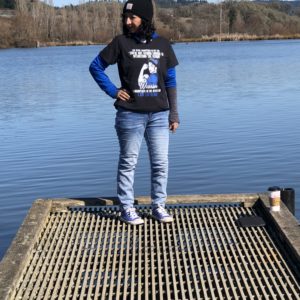
Shortly after completing her treatment for colon cancer, Amber was diagnosed with ovarian cancer. It was determined that they were two separate cancers, and the complete hysterectomy that followed brought with it the heartbreak that Amber would not be able to have children of her own. As agonizing as this news was, Amber was determined to find a way to shape and influence the younger generation on her reservation and beyond.
As a Native American woman, Amber knows the importance of stories. Storytelling holds great cultural importance for all Native American people, as it is how generations have learned from the past. Her father was a storyteller as were many of her elders, and Amber knew her experience with Lynch syndrome and her cancer diagnoses put her on the path to be the same.
Though she won’t have the opportunity to share her story with her own children, she knows as an auntie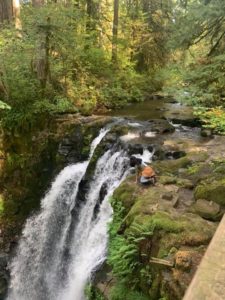 she can pass it down to her nieces and nephews as both a warning and a life lesson. In the Native community, aunties play a very important role in influencing the next generation, and Amber has much to give, much to teach, and much to share after her experience with misdiagnosis and cancer.
she can pass it down to her nieces and nephews as both a warning and a life lesson. In the Native community, aunties play a very important role in influencing the next generation, and Amber has much to give, much to teach, and much to share after her experience with misdiagnosis and cancer.
Getting her diagnosis wasn’t easy, and she met with so many barriers and resistance each time she sought help from her health care team. It was in those moments that she learned the power of advocacy, and she tells her story so others can be empowered in their own lives through two visible themes in Amber’s life – hope and persistence. “I’m strong enough to live through it for someone else to learn from it.”
_________________________________________________
Amber recently participated in “Living with Lynch,” a collaborative weekend where the Colon Cancer Coalition and AliveAndkickn brought together a small group of individuals and families impacted by Lynch syndrome. The group not only learned more about advocating for themselves, but were able to discuss the mutation with experts in genetics, research, and treatment from MD Anderson Cancer Center so they could become more informed advocates for others.
RETURN TO FACES OF BLUE LEARN MORE ABOUT CANCER GENETICS & TESTING GET INVOLVED WITH ALIVEANDKICKN

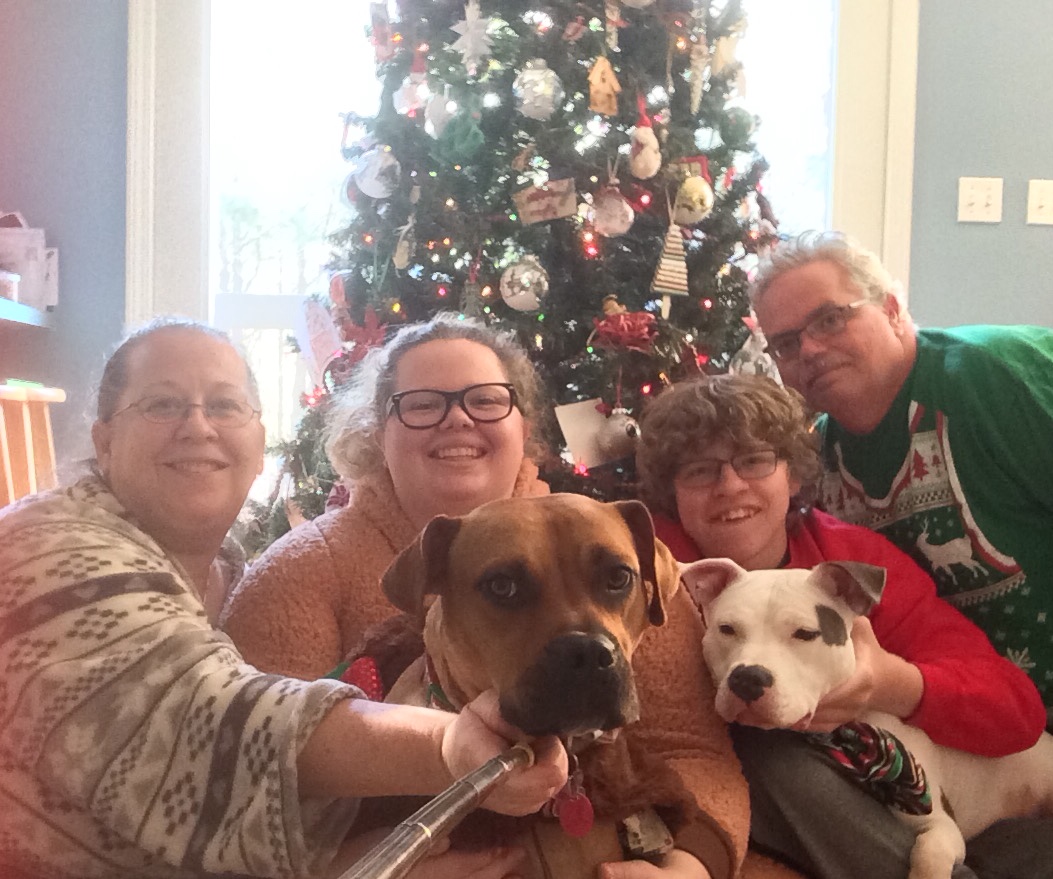
Amber is the true meaning of warrior!! I’ve watched her fight and continue to live her life. I am very proud to call her my kids Auntie and my sister! She Continues to be amazing and raise awareness for others!!